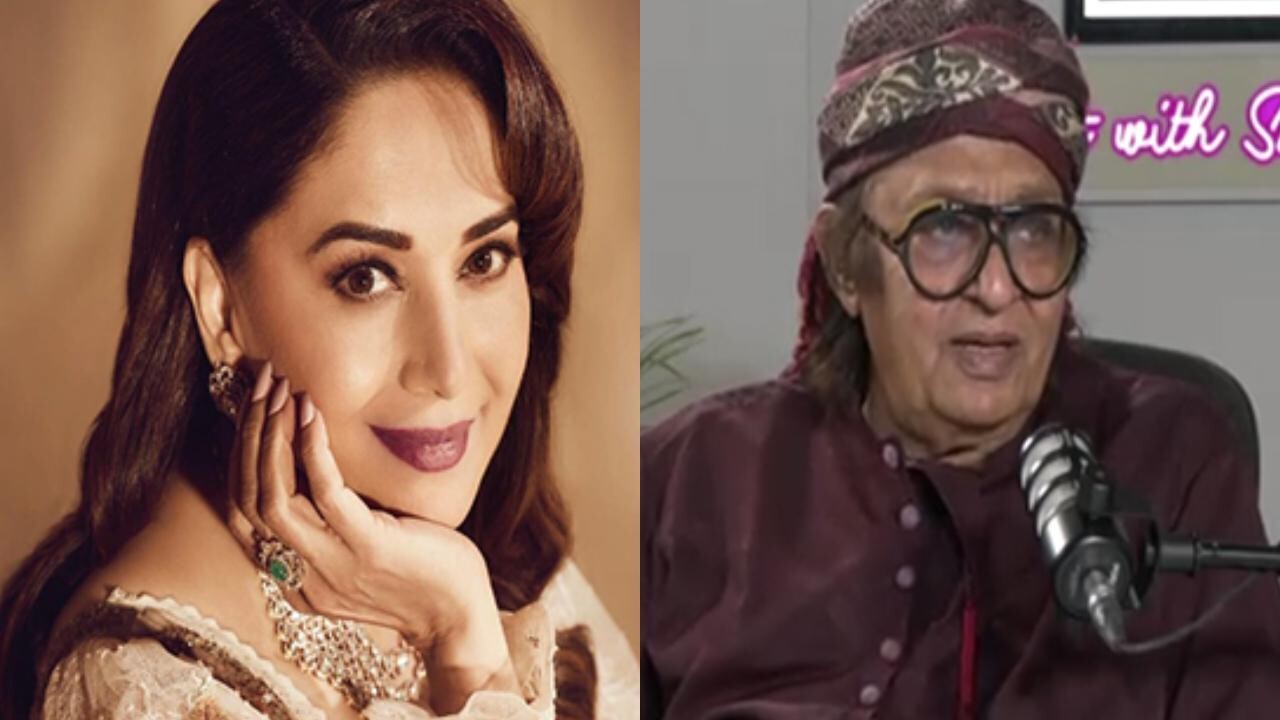
Renowned for his portrayals of antagonists in Indian cinema, Gopal Bedi, widely recognized by his stage name Ranjeet, has etched his presence as one of Bollywood’s most iconic villains. Despite his overwhelming success, Ranjeet’s real-life persona often clashes with the negative characters he depicts on screen, leading to several misunderstandings. A poignant example of this surfaced from the sets of the film ‘Prem Pratigya,’ where his co-star, Madhuri Dixit, became distressed during a challenging scene.
In ‘Prem Pratigya,’ Madhuri Dixit assumed the role of a destitute man’s daughter, while Ranjeet was cast as her antagonist. A scene required Ranjeet’s character to commit an act of molestation, which overwhelmed the young actress. Recounting the incident to ANI, Ranjeet shared that Madhuri, confronted with the harrowing task, broke down in tears and refused to proceed with the scene. Unbeknownst to him at the time, their Bengali art director had briefed him inadequately. The situation was further complicated by a language barrier with the director, Bapu, who hailed from the South of India.
Despite the graveness of this encounter, Ranjeet described his usual demeanor on set as lighthearted and straightforward, often avoiding the seclusion of the makeup room to integrate with his co-stars and crew. This approach earned him respect and prevented any semblance of artifice in his relationships.
Revealing more about the incident, Ranjeet explained that after the initial shock had faded, Madhuri eventually consented to perform the scene, which took place on a handcart, symbolizing her character’s father’s poverty. The fight master, Veeru Devgan, insisted on continuous filming without cuts to capture the authenticity of the performance.
Throughout his career, Ranjeet has maintained a policy of gentleness and support with actresses, initiating a method where they would literally fight back against his on-screen advances, offering them a sense of empowerment even within these scripted acts of violence. The actor admitted that such scenes of assault were a standard expectation for the villain’s role in films at the time, emphasizing that the character is fictional and not a reflection of personal morality.
Ranjeet’s tenure in Bollywood spans over 500 films, boasting significant roles in classics like ‘Sharmeelee,’ ‘Bandhe Haath,’ and ‘Namak Halal.’ He has continued to demonstrate his versatility and charm in recent offerings, including ‘Behen Hogi Teri,’ ‘Housefull 2,’ and ‘Housefull 4.’
His reflection on the incident touches upon the complex dynamics behind filming unsettling scenes and how they are managed both professionally and emotionally by the actors involved. It underscores the delicate balance between creating compelling cinema and the real-world implications such depictions entail for performers.
While the retold event sheds light on a harrowing moment from Madhuri Dixit’s early career, it also illuminates Ranjeet’s sensitivity and professionalism, traits that have fostered long-lasting relationships within the film industry. The narrative reveals the dichotomy of Ranjeet’s screen presence and off-screen persona, highlighting the actor’s commitment to his craft while maintaining a supportive environment for his colleagues.
As the storytelling medium of film continues to evolve, incidents like these offer a candid glimpse into the changing landscape of actor comfort and the on-set dynamics of past decades. Celebrities like Ranjeet provide a valuable historical context for the sensitivities of current and future actors in confronting challenging roles.
This story, which has been sourced from a third-party syndicated feed, signifies the often-hidden struggles and poignant moments that make up the rich tapestry of the film industry’s history. Ranjeet’s remembrance offers a reminder of the humanity that persists behind the villainous facade.












